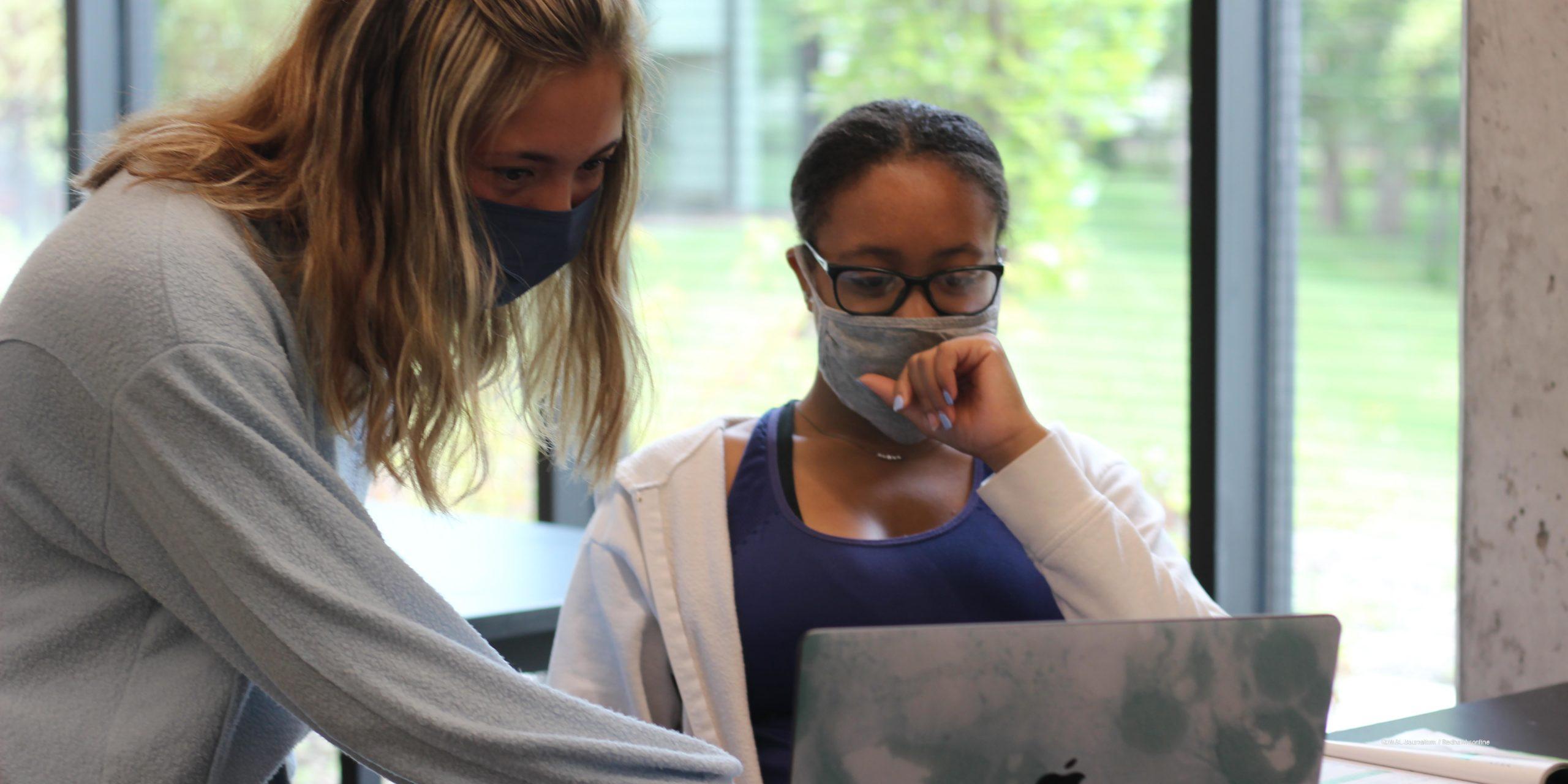What happens next? What changes will stick?
The past eight months have been a whirlwind of chaos and change. COVID-19 stormed the United States in March, causing a shutdown of businesses, schools and the public in general. Eight months later, some say there is no turning back.
“I don’t think it’s gonna go back to the old normal,” said chemistry teacher Joy Reist. “It will look different now. We have better tools for online and different ways of doing things.”
The homeroom
Much has changed in education. The majority of U.S. schools have switched to virtual learning completely until further notice. Nearly 99,875 public schools closed by the end of March, forcing 52,777,573 students to shift to a distant learning environment, according to data collected by Education Week. Many schools are continuing online education for the 2020-2021 school year.
At home learning options may stick around in the future for students who cannot come into class. It would provide an accessible alternative to coming into school while ill or unnecessarily missing important work.
“I think the concept of virtual meetings will stick after COVID-19 regulations end,” said senior Toby Jacobson. “There is not always a need to be in person, so virtual meetings provide a more convenient and sometimes effective way to connect.”
Online learning during quarantine presented new challenges to students and teachers, such as less face to face interaction, less collaborative thinking, and less connections.
“During online learning it was really hard to keep yourself motivated,” said junior Claire Fortier. “It was really hard for me to focus. Even though I had a designated space for it, there were so many things to get distracted by. So that was a challenge for me.”
An overwhelming consensus of mental drainage being a major player in virtual learning was shared among the school community.
“During quarantine, it was really… draining,” said Reist. “My normal teaching day [before quarantine] was a lot of human interaction and moving around the classroom and then it turned into sitting at my computer for eight hours a day. I was just drained after every class period and every week and every zoom call.”
The workplace
Educators were certainly not the only ones whose jobs were affected. Any employees considered non-essential workers were asked to work from home. Most non-essential offices and businesses are working remotely until January 1, 2021 at the earliest. Working from home may be a more accessible option in the future as well.
The new social etiquette
Along with social distancing, starting April 8, state governments began to require people to wear masks out in public. This new social etiquette is not heavily enforced throughout the entire country. Only 36 states currently require masks to be worn in public. Wearing masks as a common courtesy to others when sick, may become a part of the “new norm”.
“I think with this virus and now everybody having several masks, I think we’ll see them more commonly,” said Reist. “Whether you’re sick or just maybe have some health things. I think it will be like some people around us are going to keep wearing them, so it’d be like a new norm.”
The community
These new social protocols caused national conflict, resulting in mask-wearing to become a political issue. Masks, among other social issues such as racial injustices, are hotly debated at the moment, deepening the nation’s divide. During these times of tribulation and conflict, there is much to think about regarding civil rights and political correctness. A lack of busyness many experienced over quarantine may have had an affect on people’s social and political activism.
“I think in a way [quarantine] has given people, some time to, you know, educate themselves,” said Fortier. “We have the time, more than ever, right now. And we have resources more than ever right now.”
The individual
When not on an exciting weekly grocery run, working, or learning, people had to fill their time in quarantine. Many reported taking up new hobbies, exercising more, and spending time with family. Even though friends were not as easily accessible as before, other relationships still had the opportunity to grow.
“I have become a more spiritual person in quarantine and have made my relationship with God a priority,” said Jacobson. “During these difficult times, I have found peace in Him and let Him guide my life. I have also sought to make all of my conversations meaningful and have been trying to bring joy to others because I do not know how they are dealing with COVID-19 or how it’s affecting them.”
Some, like Jacobson, used this experience as an opportunity for gratitude and empathy, finding a positive in the midst of an international crisis.
With so many changes in the past eight months, it would be a challenge to navigate back to the old normal. Only time will tell what changes will stick.

